Here are some events that happened on December 25th. It could be an event or a person that died or was born on that day
1642 Born: Isaac Newton, English physicist and mathematician (d. 1726/1727)
Sir Isaac Newton (25 December 1642 – 20 March 1726/27) was an English mathematician, physicist, astronomer, theologian, and author (described in his own day as a "natural philosopher") who is widely recognised as one of the most influential scientists of all time and as a key figure in the scientific revolution. His book Philosophiæ Naturalis Principia Mathematica (Mathematical Principles of Natural Philosophy), first published in 1687, laid the foundations of classical mechanics. Newton also made seminal contributions to optics, and shares credit with Gottfried Wilhelm Leibniz for developing the infinitesimal calculus.
In Principia, Newton formulated the laws of motion and universal gravitation that formed the dominant scientific viewpoint until it was superseded by the theory of relativity. Newton used his mathematical description of gravity to prove Kepler's laws of planetary motion, account for tides, the trajectories of comets, the precession of the equinoxes and other phenomena, eradicating doubt about the Solar System's heliocentricity. He demonstrated that the motion of objects on Earth and celestial bodies could be accounted for by the same principles. Newton's inference that the Earth is an oblate spheroid was later confirmed by the geodetic measurements of Maupertuis, La Condamine, and others, convincing most European scientists of the superiority of Newtonian mechanics over earlier systems.
Newton built the first practical reflecting telescope and developed a sophisticated theory of colour based on the observation that a prism separates white light into the colours of the visible spectrum. His work on light was collected in his highly influential book Opticks, published in 1704. He also formulated an empirical law of cooling, made the first theoretical calculation of the speed of sound, and introduced the notion of a Newtonian fluid. In addition to his work on calculus, as a mathematician Newton contributed to the study of power series, generalised the binomial theorem to non-integer exponents, developed a method for approximating the roots of a function, and classified most of the cubic plane curves.
Newton was a fellow of Trinity College and the second Lucasian Professor of Mathematics at the University of Cambridge. He was a devout but unorthodox Christian who privately rejected the doctrine of the Trinity. Unusually for a member of the Cambridge faculty of the day, he refused to take holy orders in the Church of England. Beyond his work on the mathematical sciences, Newton dedicated much of his time to the study of alchemy and biblical chronology, but most of his work in those areas remained unpublished until long after his death. Politically and personally tied to the Whig party, Newton served two brief terms as Member of Parliament for the University of Cambridge, in 1689–90 and 1701–02. He was knighted by Queen Anne in 1705 and spent the last three decades of his life in London, serving as Warden (1696–1699) and Master (1699–1727) of the Royal Mint, as well as president of the Royal Society (1703–1727).
Stamps and covers from Russia, Germany, Great Britain and Monaco depicting Isaac Newton
1899 Born: Humphrey Bogart, American actor (d. 1957)
Humphrey DeForest Bogart (December 25, 1899 – January 14, 1957) was an American film and stage actor. His performances in Classical Hollywood cinema films made him an American cultural icon. In 1999, the American Film Institute selected Bogart as the greatest male star of classic American cinema.
Bogart began acting in Broadway shows, beginning his career in motion pictures with Up the River (1930) for Fox. Bogart appeared in supporting roles for the next decade, sometimes portraying gangsters. Bogart was praised for his work as Duke Mantee in The Petrified Forest (1936), but remained secondary to other actors Warner Bros. cast in lead roles.
His breakthrough from supporting roles to stardom came with High Sierra (1941) and The Maltese Falcon (1941), considered one of the first great noir films. Bogart's private detectives, Sam Spade (in The Maltese Falcon) and Phillip Marlowe (in 1946's The Big Sleep), became the models for detectives in other noir films. His most significant romantic lead role was with Ingrid Bergman in Casablanca (1942), which earned him his first nomination for the Academy Award for Best Actor. Bogart and 19-year-old Lauren Bacall fell in love when they filmed To Have and Have Not (1944); soon after the main filming for The Big Sleep (1946, their second film together), he filed for divorce from his third wife and married Bacall. After their marriage, she played his love interest in Dark Passage (1947) and Key Largo (1948).
Bogart's performances in The Treasure of the Sierra Madre (1948) and In a Lonely Place (1950) are now considered among his best, although they were not recognized as such when the films were released. He reprised those unsettled, unstable characters as a World War II naval-vessel commander in The Caine Mutiny (1954), which was a critical and commercial hit and earned him another Best Actor nomination. As a cantankerous river steam launch skipper with Katharine Hepburn's missionary in the World War I adventure The African Queen (1951), Bogart received the Academy Award for Best Actor. In his later years, significant roles included The Barefoot Contessa with Ava Gardner and his on-screen competition with William Holden for Audrey Hepburn in Sabrina (1954). A heavy smoker and drinker, Bogart died from esophageal cancer in January 1957.
US sheet depicting Humphrey Bogart
1977 Died: Charlie Chaplin, English actor and director (b. 1889)
Sir Charles Spencer Chaplin (16 April 1889 – 25 December 1977) was an English comic actor, filmmaker, and composer who rose to fame in the era of silent film. He became a worldwide icon through his screen persona, "The Tramp", and is considered one of the most important figures in the history of the film industry. His career spanned more than 75 years, from childhood in the Victorian era until a year before his death in 1977, and encompassed both adulation and controversy.
Chaplin's childhood in London was one of poverty and hardship, as his father was absent and his mother struggled financially, and he was sent to a workhouse twice before the age of nine. When he was 14, his mother was committed to a mental asylum. Chaplin began performing at an early age, touring music halls and later working as a stage actor and comedian. At 19, he was signed to the prestigious Fred Karno company, which took him to America. He was scouted for the film industry and began appearing in 1914 for Keystone Studios. He soon developed the Tramp persona and formed a large fan base. He directed his own films and continued to hone his craft as he moved to the Essanay, Mutual, and First National corporations. By 1918, he was one of the best-known figures in the world.
In 1919, Chaplin co-founded the distribution company United Artists, which gave him complete control over his films. His first feature-length film was The Kid (1921), followed by A Woman of Paris (1923), The Gold Rush (1925), and The Circus (1928). He initially refused to move to sound films in the 1930s, instead producing City Lights (1931) and Modern Times (1936) without dialogue. He became increasingly political, and his first sound film was The Great Dictator (1940), which satirised Adolf Hitler. The 1940s were a decade marked with controversy for Chaplin, and his popularity declined rapidly. He was accused of communist sympathies, and some members of the press and public found his involvement in a paternity suit, and marriages to much younger women, scandalous. An FBI investigation was opened, and Chaplin was forced to leave the United States and settle in Switzerland. He abandoned the Tramp in his later films, which include Monsieur Verdoux (1947), Limelight (1952), A King in New York (1957), and A Countess from Hong Kong (1967).
Chaplin wrote, directed, produced, edited, starred in, and composed the music for most of his films. He was a perfectionist, and his financial independence enabled him to spend years on the development and production of a picture. His films are characterised by slapstick combined with pathos, typified in the Tramp's struggles against adversity. Many contain social and political themes, as well as autobiographical elements. He received an Honorary Academy Award for "the incalculable effect he has had in making motion pictures the art form of this century" in 1972, as part of a renewed appreciation for his work. He continues to be held in high regard, with The Gold Rush, City Lights, Modern Times, and The Great Dictator often ranked on lists of the greatest films of all time.
Stamps from the US, Spain, Monaco and Vatican City depicting Charlie Chaplin

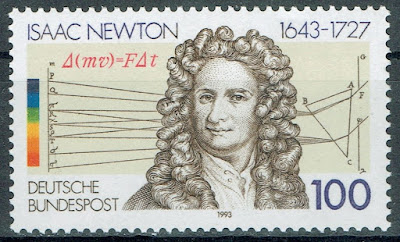

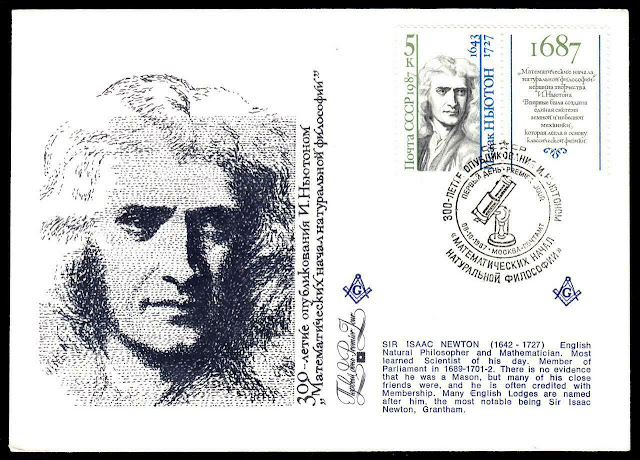

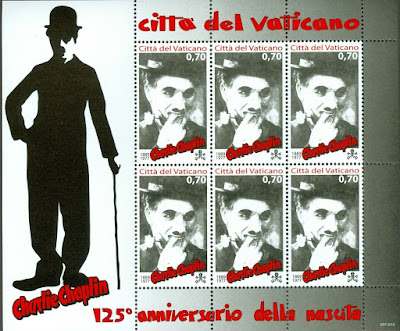
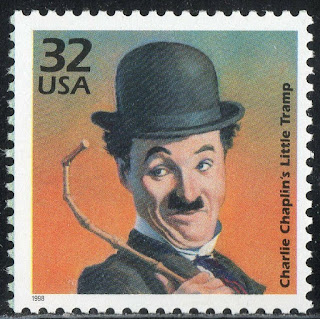
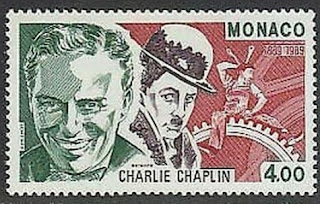

No comments:
Post a Comment